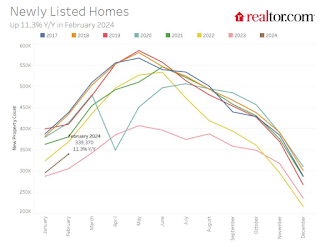Duke Energy Carolinas proposes annual update to charges related to fuel, renewable energy and energy efficiency programs in North Carolina
– Rising demand following COVID-19 shutdown paired with sharply rising fuel costs, which Duke Energy does not profit on, will increase customer prices.

Duke Energy Carolinas proposes annual update to charges related to fuel, renewable energy and energy efficiency programs in North Carolina
- Rising demand following COVID-19 shutdown paired with sharply rising fuel costs, which Duke Energy does not profit on, will increase customer prices.
- If approved, customers will see their monthly bills increase starting in September.
PR Newswire
CHARLOTTE, N.C., March 2, 2022
CHARLOTTE, N.C., March 2, 2022 /PRNewswire/ -- Duke Energy Carolinas yesterday made its annual filings with the North Carolina Utilities Commission (NCUC) for costs associated with fuel, state programs to encourage renewable energy adoption, and energy efficiency and demand management programs to reduce energy use.
Duke Energy Carolinas is proposing an increase in monthly fuel costs as part of its annual adjustment of the actual cost of fuel used to power North Carolina homes and businesses. By law, the company makes no profit from the fuel component of rates.
The NCUC reviews the fuel costs required to serve customers to ensure an accurate adjustment is made each year. If approved, the new fuel and renewable energy adoption rates would go into effect Sept. 1, 2022, and the new energy efficiency and demand management rates would go into effect Jan. 1, 2023.
By Jan. 1, a typical bill would increase 6.6% for residential customers, 9.3% for commercial customers and 9.0% for industrial customers (residential customer rates would go up 7.9% as of Sept. 1 to adjust for fuel and renewable energy programs, then decline 1.2% on Jan. 1 when energy efficiency and demand management adjustments kick in). The total monthly impact of all rate changes for a typical residential customer using 1,000 kilowatt-hours (kWh) per month would be an increase of $6.94, from $105.34 to $112.28.
What's driving the proposed increase
Rising energy demand as North Carolina emerged from the 2020 COVID-19 shutdowns resulted in a significant increase in fuel needs for power generation, compounded by fuel commodity prices climbing drastically in 2021 due to tight supplies.
The sharp increase in commodity prices contributed to a $245 million under-recovery across the prior year, when fuel prices climbed sharply right after the company's annual filing. The North Carolina fuel clause does not allow utilities to adjust rates during the billing period to prevent such customer underpayment, so the proposed rates include recovery of this shortfall.
Duke Energy Carolinas serves about 2 million households and businesses in central and western North Carolina, including Charlotte, Durham and the Triad. The company's other North Carolina utility – Duke Energy Progress – will make its annual fuel filing in June.
Helping customers save
Duke Energy works to actively manage its fuel contracts to keep fuel costs as low as possible for customers. Savings achieved from the joint dispatch of Duke Energy's generation fleet in the Carolinas also help to lower the company's fuel costs.
Duke Energy offers energy-saving tips and innovative efficiency programs for every budget to help customers take control of their energy use. For example, the Home Energy House Call is a free in-home energy assessment that provides customers more information about how they use energy and strategies to save money on their monthly bill. To learn more about these programs, visit duke-energy.com/savings.
Customers struggling to pay their energy bills can seek assistance through the Share the Light Fund, a Duke Energy program that provides assistance to vulnerable customers. Duke Energy is also currently leading a Low Income Affordability Collaborative pursuant to an NCUC order, working with a diverse group of stakeholders to develop new options to ensure equitable, affordable energy for those most in need.
Duke Energy
Duke Energy (NYSE: DUK), a Fortune 150 company headquartered in Charlotte, N.C., is one of America's largest energy holding companies. Its electric utilities serve 8.2 million customers in North Carolina, South Carolina, Florida, Indiana, Ohio and Kentucky, and collectively own 51,000 megawatts of energy capacity. Its natural gas unit serves 1.6 million customers in North Carolina, South Carolina, Tennessee, Ohio and Kentucky. The company employs 28,000 people.
Duke Energy is executing an aggressive clean energy strategy to create a smarter energy future for its customers and communities. The company has goals of at least a 50% carbon reduction from electric generation and net-zero methane emissions from its natural gas business by 2030, and net-zero emissions by 2050 from its electric and natural gas businesses, including Scopes 1, 2 and certain Scope 3 emissions. The company also is investing in major electric grid upgrades and expanded battery storage, and exploring zero-emitting power generation technologies such as hydrogen and advanced nuclear.
Duke Energy was named to Fortune's 2022 "World's Most Admired Companies" list and Forbes' "America's Best Employers" list. More information is available at duke-energy.com. The Duke Energy News Center contains news releases, fact sheets, photos and videos. Duke Energy's illumination features stories about people, innovations, community topics and environmental issues. Follow Duke Energy on Twitter, LinkedIn, Instagram and Facebook.
Media contact: Bill Norton
800.559.3853
View original content to download multimedia:https://www.prnewswire.com/news-releases/duke-energy-carolinas-proposes-annual-update-to-charges-related-to-fuel-renewable-energy-and-energy-efficiency-programs-in-north-carolina-301494315.html
SOURCE Duke Energy
Uncategorized
Part 1: Current State of the Housing Market; Overview for mid-March 2024
Today, in the Calculated Risk Real Estate Newsletter: Part 1: Current State of the Housing Market; Overview for mid-March 2024
A brief excerpt: This 2-part overview for mid-March provides a snapshot of the current housing market.
I always like to star…

A brief excerpt:
This 2-part overview for mid-March provides a snapshot of the current housing market.There is much more in the article.
I always like to start with inventory, since inventory usually tells the tale!
...
Here is a graph of new listing from Realtor.com’s February 2024 Monthly Housing Market Trends Report showing new listings were up 11.3% year-over-year in February. This is still well below pre-pandemic levels. From Realtor.com:
However, providing a boost to overall inventory, sellers turned out in higher numbers this February as newly listed homes were 11.3% above last year’s levels. This marked the fourth month of increasing listing activity after a 17-month streak of decline.Note the seasonality for new listings. December and January are seasonally the weakest months of the year for new listings, followed by February and November. New listings will be up year-over-year in 2024, but we will have to wait for the March and April data to see how close new listings are to normal levels.
There are always people that need to sell due to the so-called 3 D’s: Death, Divorce, and Disease. Also, in certain times, some homeowners will need to sell due to unemployment or excessive debt (neither is much of an issue right now).
And there are homeowners who want to sell for a number of reasons: upsizing (more babies), downsizing, moving for a new job, or moving to a nicer home or location (move-up buyers). It is some of the “want to sell” group that has been locked in with the golden handcuffs over the last couple of years, since it is financially difficult to move when your current mortgage rate is around 3%, and your new mortgage rate will be in the 6 1/2% to 7% range.
But time is a factor for this “want to sell” group, and eventually some of them will take the plunge. That is probably why we are seeing more new listings now.
Government
RFK Jr. Reveals Vice President Contenders
RFK Jr. Reveals Vice President Contenders
Authored by Jeff Louderback via The Epoch Times,
New York Jets quarterback Aaron Rodgers and former…

Authored by Jeff Louderback via The Epoch Times,
New York Jets quarterback Aaron Rodgers and former Minnesota governor and professional wrestler Jesse Ventura are among the potential running mates for independent presidential candidate Robert F. Kennedy Jr., the New York Times reported on March 12.
Citing “two people familiar with the discussions,” the New York Times wrote that Mr. Kennedy “recently approached” Mr. Rodgers and Mr. Ventura about the vice president’s role, “and both have welcomed the overtures.”
Mr. Kennedy has talked to Mr. Rodgers “pretty continuously” over the last month, according to the story. The candidate has kept in touch with Mr. Ventura since the former governor introduced him at a February voter rally in Tucson, Arizona.
Stefanie Spear, who is the campaign press secretary, told The Epoch Times on March 12 that “Mr. Kennedy did share with the New York Times that he’s considering Aaron Rodgers and Jesse Ventura as running mates along with others on a short list.”
Ms. Spear added that Mr. Kennedy will name his running mate in the upcoming weeks.
Former Democrat presidential candidates Andrew Yang and Tulsi Gabbard declined the opportunity to join Mr. Kennedy’s ticket, according to the New York Times.
Mr. Kennedy has also reportedly talked to Sen. Rand Paul (R-Ky.) about becoming his running mate.
Last week, Mr. Kennedy endorsed Mr. Paul to replace Sen. Mitch McConnell (R-Ky.) as the Senate Minority Leader after Mr. McConnell announced he would step down from the post at the end of the year.
CNN reported early on March 13 that Mr. Kennedy’s shortlist also includes motivational speaker Tony Robbins, Discovery Channel Host Mike Rowe, and civil rights attorney Tricia Lindsay. The Washington Post included the aforementioned names plus former Republican Massachusetts senator and U.S. Ambassador to New Zealand and Samoa, Scott Brown.
In April 2023, Mr. Kennedy entered the Democrat presidential primary to challenge President Joe Biden for the party’s 2024 nomination. Claiming that the Democrat National Committee was “rigging the primary” to stop candidates from opposing President Biden, Mr. Kennedy said last October that he would run as an independent.
This year, Mr. Kennedy’s campaign has shifted its focus to ballot access. He currently has qualified for the ballot as an independent in New Hampshire, Utah, and Nevada.
Mr. Kennedy also qualified for the ballot in Hawaii under the “We the People” party.
In January, Mr. Kennedy’s campaign said it had filed paperwork in six states to create a political party. The move was made to get his name on the ballots with fewer voter signatures than those states require for candidates not affiliated with a party.
The “We the People” party was established in five states: California, Delaware, Hawaii, Mississippi, and North Carolina. The “Texas Independent Party” was also formed.
A statement by Mr. Kennedy’s campaign reported that filing for political party status in the six states reduced the number of signatures required for him to gain ballot access by about 330,000.
Ballot access guidelines have created a sense of urgency to name a running mate. More than 20 states require independent and third-party candidates to have a vice presidential pick before collecting and submitting signatures.
Like Mr. Kennedy, Mr. Ventura is an outspoken critic of COVID-19 vaccine mandates and safety.
Mr. Ventura, 72, gained acclaim in the 1970s and 1980s as a professional wrestler known as Jesse “the Body” Ventura. He appeared in movies and television shows before entering the Minnesota gubernatorial race as a Reform Party headliner. He was a longshot candidate but prevailed and served one term.
Former pro wrestler Jesse Ventura in Washington on Oct. 4, 2013. (Brendan Smialowski/AFP via Getty Images)
In an interview on a YouTube podcast last December, Mr. Ventura was asked if he would accept an offer to run on Mr. Kennedy’s ticket.
“I would give it serious consideration. I won’t tell you yes or no. It will depend on my personal life. Would I want to commit myself at 72 for one year of hell (campaigning) and then four years (in office)?” Mr. Ventura said with a grin.
Mr. Rodgers, who spent his entire career as a quarterback for the Green Bay Packers before joining the New York Jets last season, remains under contract with the Jets. He has not publicly commented about joining Mr. Kennedy’s ticket, but the four-time NFL MVP endorsed him earlier this year and has stumped for him on podcasts.
The 40-year-old Rodgers is still under contract with the Jets after tearing his Achilles tendon in the 2023 season opener and being sidelined the rest of the year. The Jets are owned by Woody Johnson, a prominent donor to former President Donald Trump who served as U.S. Ambassador to Britain under President Trump.
Since the COVID-19 vaccine was introduced, Mr. Rodgers has been outspoken about health issues that can result from taking the shot. He told podcaster Joe Rogan that he has lost friends and sponsorship deals because of his decision not to get vaccinated.
Quarterback Aaron Rodgers of the New York Jets talks to reporters after training camp at Atlantic Health Jets Training Center in Florham Park, N.J., on July 26, 2023. (Rich Schultz/Getty Images)
Earlier this year, Mr. Rodgers challenged Kansas City Chiefs tight end Travis Kelce and Dr. Anthony Fauci to a debate.
Mr. Rodgers referred to Mr. Kelce, who signed an endorsement deal with vaccine manufacturer Pfizer, as “Mr. Pfizer.”
Dr. Fauci served as director of the National Institute of Allergy and Infectious Diseases from 1984 to 2022 and was chief medical adviser to the president from 2021 to 2022.
When Mr. Kennedy announces his running mate, it will mark another challenge met to help gain ballot access.
“In some states, the signature gathering window is not open. New York is one of those and is one of the most difficult with ballot access requirements,” Ms. Spear told The Epoch Times.
“We need our VP pick and our electors, and we have to gather 45,000 valid signatures. That means we will collect 72,000 since we have a 60 percent buffer in every state,” she added.
The window for gathering signatures in New York opens on April 16 and closes on May 28, Ms. Spear noted.
“Mississippi, North Carolina, and Oklahoma are the next three states we will most likely check off our list,” Ms. Spear added. “We are confident that Mr. Kennedy will be on the ballot in all 50 states and the District of Columbia. We have a strategist, petitioners, attorneys, and the overall momentum of the campaign.”
Uncategorized
Pharma industry reputation remains steady at a ‘new normal’ after Covid, Harris Poll finds
The pharma industry is hanging on to reputation gains notched during the Covid-19 pandemic. Positive perception of the pharma industry is steady at 45%…

The pharma industry is hanging on to reputation gains notched during the Covid-19 pandemic. Positive perception of the pharma industry is steady at 45% of US respondents in 2023, according to the latest Harris Poll data. That’s exactly the same as the previous year.
Pharma’s highest point was in February 2021 — as Covid vaccines began to roll out — with a 62% positive US perception, and helping the industry land at an average 55% positive sentiment at the end of the year in Harris’ 2021 annual assessment of industries. The pharma industry’s reputation hit its most recent low at 32% in 2019, but it had hovered around 30% for more than a decade prior.
“Pharma has sustained a lot of the gains, now basically one and half times higher than pre-Covid,” said Harris Poll managing director Rob Jekielek. “There is a question mark around how sustained it will be, but right now it feels like a new normal.”
The Harris survey spans 11 global markets and covers 13 industries. Pharma perception is even better abroad, with an average 58% of respondents notching favorable sentiments in 2023, just a slight slip from 60% in each of the two previous years.
Pharma’s solid global reputation puts it in the middle of the pack among international industries, ranking higher than government at 37% positive, insurance at 48%, financial services at 51% and health insurance at 52%. Pharma ranks just behind automotive (62%), manufacturing (63%) and consumer products (63%), although it lags behind leading industries like tech at 75% positive in the first spot, followed by grocery at 67%.
The bright spotlight on the pharma industry during Covid vaccine and drug development boosted its reputation, but Jekielek said there’s maybe an argument to be made that pharma is continuing to develop innovative drugs outside that spotlight.
“When you look at pharma reputation during Covid, you have clear sense of a very dynamic industry working very quickly and getting therapies and products to market. If you’re looking at things happening now, you could argue that pharma still probably doesn’t get enough credit for its advances, for example, in oncology treatments,” he said.
vaccine pandemic covid-19-

 Uncategorized3 weeks ago
Uncategorized3 weeks agoAll Of The Elements Are In Place For An Economic Crisis Of Staggering Proportions
-

 International5 days ago
International5 days agoEyePoint poaches medical chief from Apellis; Sandoz CFO, longtime BioNTech exec to retire
-

 Uncategorized4 weeks ago
Uncategorized4 weeks agoCalifornia Counties Could Be Forced To Pay $300 Million To Cover COVID-Era Program
-

 Uncategorized3 weeks ago
Uncategorized3 weeks agoApparel Retailer Express Moving Toward Bankruptcy
-

 Uncategorized4 weeks ago
Uncategorized4 weeks agoIndustrial Production Decreased 0.1% in January
-

 International5 days ago
International5 days agoWalmart launches clever answer to Target’s new membership program
-

 Uncategorized4 weeks ago
Uncategorized4 weeks agoRFK Jr: The Wuhan Cover-Up & The Rise Of The Biowarfare-Industrial Complex
-

 Uncategorized3 weeks ago
Uncategorized3 weeks agoGOP Efforts To Shore Up Election Security In Swing States Face Challenges
























